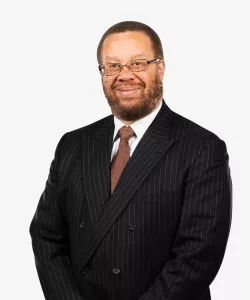Court Enjoins Federal Government from Enforcing Key Provisions of Executive Order 13950
In a major setback for the Trump administration, US District Court Judge Beth Labson Freeman, of the US District Court for the Northern District of California, issued a nationwide injunction, barring the federal government from enforcing two key provisions of Executive Order 13950, entitled Executive Order on Combating Race and Sex Stereotyping.
The plaintiffs are non-profit community organizations and consultants serving lesbian, gay, bisexual, and transgender individuals and people living with HIV.
They also provide advocacy and training to health care providers, local government agencies, local businesses, and their own employees about systemic bias, racism, anti-LGBT bias, white privilege, implicit bias, and intersectionality. This training, they contend, is fundamental to their mission of breaking down barriers that underserved communities face in receiving health care.
Their complaint contains two claims. The first asserts that the Executive Order violates the plaintiffs’ free speech rights, “because it impermissibly chills the exercise of [their] constitutionally protected speech, based on the content and viewpoint of their speech.” The second asserts that the Executive Order is void for vagueness under the Fifth Amendment’s Due Process Clause, “because it infringes on the plaintiffs’ constitutionally protected right to free speech and provides inadequate notice of the conduct it purports to prohibit.”
The plaintiffs moved for preliminary, nationwide injunction, barring the government from enforcing two key Executive Order provisions:
- Section 4, which requires government contractors to agree not to “use any workplace training that inculcates in its employees any form of race or sex stereotyping or any form of race or sex scapegoating.”
- And, Section 5, which requires federal agency heads to “review their respective grant programs and identify programs for which the agency may, as a condition of receiving such a grant, require the recipient to certify that it will not use Federal funds to promote” the disfavored “divisive concepts”.
Judge Freeman has made no final ruling on the substance of the plaintiffs’ claims. But, regarding Sections 4 and 5, she concluded that the plaintiffs are likely to succeed on the merits and to suffer irreparable harm absent a preliminary injunction. She concluded, as well, that the balance of equities tip in the plaintiffs’ favor and that issuing an injunction is in the public interest.
Thus, Judge Freeman granted the plaintiffs’ motion and barred the government, but not the President of the United States, from enforcing Sections 4 and 5 of the Executive Order.
The administration may appeal Judge Freeman’s order to the Ninth Circuit.
Contacts
- Related Industries
- Related Practices

